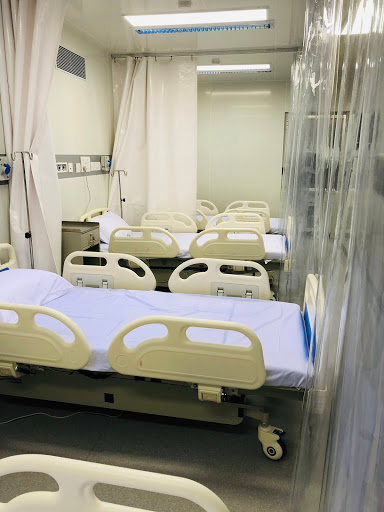Mumbai: The hospital sector in India is grappling with a challenge that refuses to fade into the background: a shortfall of nearly two million beds. CareEdge Ratings estimates that the country has only around 16 beds per 10,000 people, well below the World Health Organization’s recommended norm of 30. This gap is not an abstract figure but a daily reality that shapes how hospitals expand, how they manage their finances, and how they respond to rising demand.
The problem is not evenly spread. Around 65–70 per cent of hospital beds are located in urban centres, while nearly two‑thirds of the population lives in rural areas. This imbalance highlights the uneven distribution of healthcare infrastructure and points to the scale of opportunity for investment. With public capital expenditure constrained, the private sector has become the main driver of new capacity.
Even within these limitations, the industry has shown resilience. CareEdge Ratings projects growth of 11–12 per cent annually over the next three to five years, supported by demographic change, the rising incidence of lifestyle diseases, expanding insurance coverage, and medical tourism. The government has increased healthcare expenditure, with the Union Budget for FY26 allocating nearly ₹99,858 crore, a rise of 9.8 per cent from the previous year. Yet this remains modest compared with global benchmarks, reinforcing the reliance on private providers to fill the gap.
Demographics are central to the story. With life expectancy rising and more people entering the 45‑plus age group, demand for chronic disease management, preventive care, and specialised treatments is expected to grow. Insurance penetration has also expanded, with coverage rising from about 20 crore people in 2014 to around 55 crore in 2024. Even so, penetration stands at roughly 40 per cent, leaving significant scope for further growth. Projections suggest coverage could reach 47–50 per cent by FY30, which would increase hospitalisation rates and support organised providers.
Medical tourism has added another layer of demand. More than seven lakh medical tourists visited India in 2024, attracted by costs that are 60–90 per cent lower than in many other countries and by the quality of care. India ranks among the top ten destinations globally, with most visitors arriving from Africa, West Asia, and South Asia. This inflow has strengthened revenues and reinforced India’s position as a regional healthcare hub.
Financial indicators suggest a sector that has stabilised after the disruption of the pandemic. Average revenue per occupied bed grew at 8–9 per cent annually over the past five years, supported by improvements in case mix and payer mix, alongside the expansion of high‑end surgeries. In FY25, ARPOB rose by about 7 per cent, with CareEdge Ratings expecting growth of 5–6 per cent annually in the near term. Occupancy levels have held steady at 62–64 per cent despite capacity additions, underscoring persistent demand. EBITDA margins have stabilised at 21–22 per cent, while net leverage has improved from around 5.0 times in FY19 to 1.4 times in FY25. These figures point to a healthier financial profile that supports expansion.
Improved cash flows have triggered a new capital expenditure cycle. After muted investment between FY19 and FY24, hospitals are now adding capacity at a faster pace. In FY25, leading listed players added about 3,200–3,300 beds, with plans for 15,000 more over the next three years. Bed capacity is expected to rise by 35–40 per cent over the next three to five years, shifting growth from being revenue‑led to volume‑driven. CareEdge Ratings anticipates that new beds will be absorbed without difficulty, supported by favourable demand fundamentals such as ageing demographics, rising incidence of lifestyle diseases, expanding insurance coverage, and higher disposable incomes.
Returns on capital employed are expected to moderate from the post‑COVID high of 14–15 per cent to around 11.5–12 per cent, reflecting the gestation period of new capacities. Even so, they will remain structurally stronger than pre‑pandemic levels, aided by scale benefits and operating leverage. Credit metrics are projected to remain comfortable, with leverage moderating only marginally as the capex cycle progresses.
Investment patterns remain uneven, with most new capacity concentrated in metropolitan areas where paying profiles are stronger and demand for complex treatments is higher. Yet hospital chains are increasingly expanding into Tier‑2 and Tier‑3 cities, where lower build costs and underpenetration support attractive returns. Concerns about overcapacity in metros are rising, but CareEdge Ratings believes systemic oversupply is unlikely in the medium term. Hospitals are mitigating risk through differentiated specialities, referral networks, and hub‑and‑spoke models that widen catchments.
Technology is expected to play a growing role in bridging the gap. Digital health adoption and AI‑enabled diagnostics are seen as key differentiators, particularly in underpenetrated Tier‑2 and Tier‑3 markets. As hospitals scale, technology will complement physical capacity creation, helping to balance utilisation across metro and non‑metro networks.
The two million bed gap remains the defining challenge for India’s healthcare system. Yet the sector’s ability to sustain occupancy levels, expand capacity, and stabilise margins reflects resilience and adaptability. With demand fundamentals firmly in place, financial stability restored, and a new capex cycle underway, India’s hospital industry is positioned for sustained growth. The balance between metro concentration and expansion into smaller cities, coupled with the integration of digital health, will shape its evolution. For now, the outlook is one of steady expansion against the backdrop of a system still catching up with its own population.








